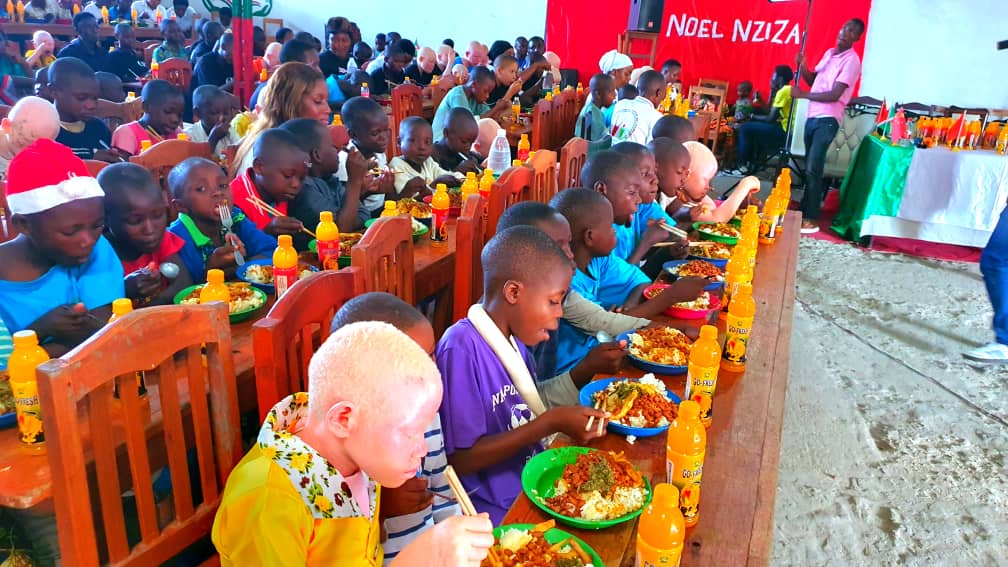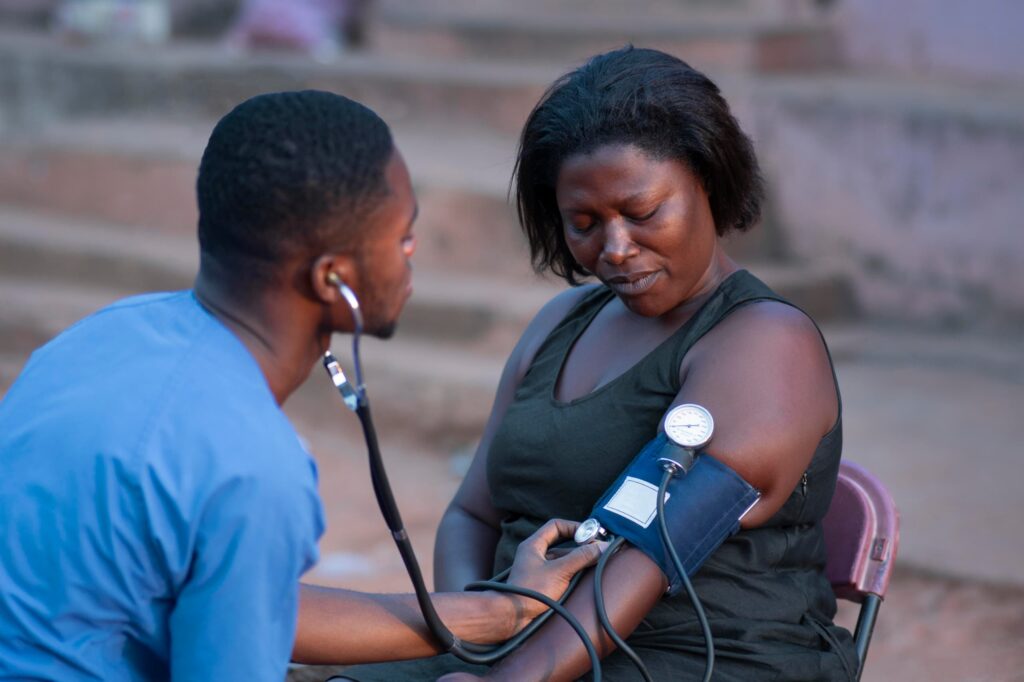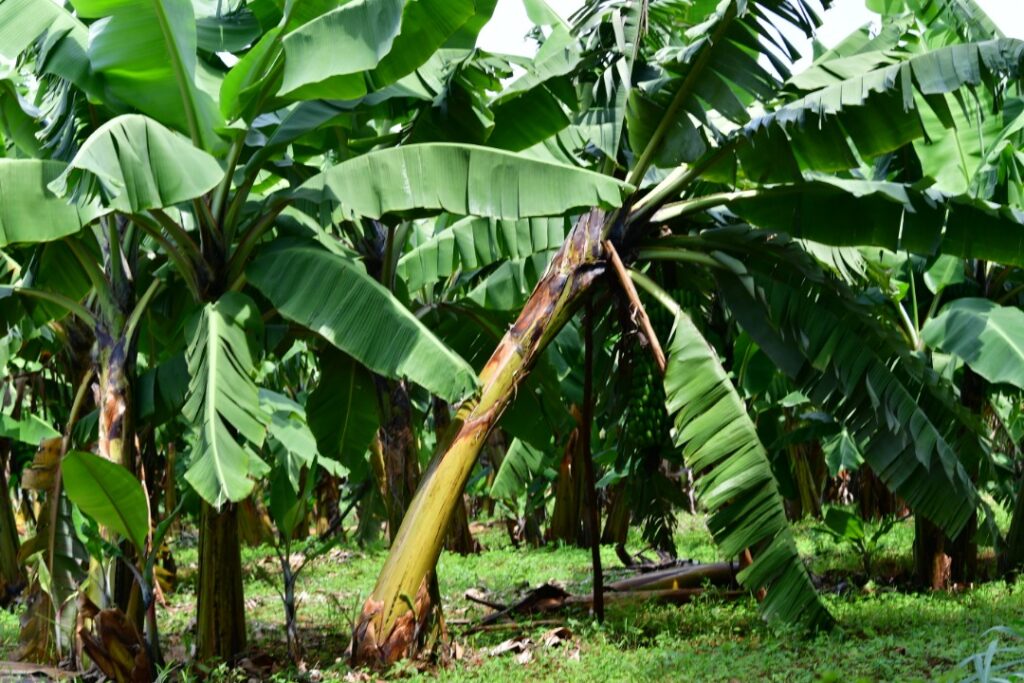Under the umbrella of Community Gardens Programme (CGP), EdSF Burundi has introduced the pedagogical gardens project focusing on agroecology farming to support school meals programme since 2023. However, during the Vulnerability and Food Security Assessment conducted in communities surrounding the targeted schools in March 2025 in project intervention (Bujumbura province involving Bubanza, Cibitoke districts as per the 2025 new administrative division) in addition to Ngozi and Rutana districts, over 45% of children under five suffer from malnutrition, more than 54% from stunting and over 50% of children under five are underweight halting a child’s growth, weaken the immune system, impair cognitive development, and even increase the risk of mortality. Added to this, the study also found that in those surroundings, It’s important to underline that UNICEF indicated that malnutrition during the first 1,000 days of children’s life can have severe and long-lasting consequences including depriving children from reaching their full potentials. This situation pushed EdSF Burundi to extend its project integrating orphanage centers in its feeding program piloted in schools, in current province of Bujumbura, since 2024 whose so far, the results look outstanding in 5 boarding and non-boarding schools and 2 orphanage centers participating in project and are meeting the food distribution needed to improve children and students’ health and reducing down school dropouts, we are seeing 0% of school dropouts. For both boarding and non-boarding schools, we support students (primary level, grade 1-6) and (secondary level grade 7-9). The project is looking prospective to integrate preschool assistance when early childhood education get started.
The above assessment went on to show that more than 20,000 children are orphans in the provinces of Bujumbura, Butanyerera and Burunga and are expected to start preschool education if donors would support to relieve their burden. In 6 months back, the two established orphanage centers received an increased number of orphans under 5 years old which make us of deeply thinking about the genuine solution to their needs especially in terms of education at early age and provision of fortified food in same way as for vulnerable pregnant and breastfeeding mothers living in surrounding communities.
Today, EdSF Burundi is looking for a financial support to amplify its intervention promoting ecological organic agriculture at community-based level supporting more than 948,000 farmers, 58 percent of whom will be women, modeling on Community and Pedagogical Gardens, in the provinces of Bujumbura, Butanyerera and Burunga, partnering with NIYONGABO Foundation to continue providing beans cooked with rice, maize or sweet potatoes and vegetable as well as porridge made of wheat, groundnut, soybeans, etc., and this form part of nutritious meals to be served to children aged from two years and above and for vulnerable mothers in the project areas. A part from nutritional support, NIYONGABO Foundation provides other services to vulnerable children such as healthcare, clothing, shelter and school fees, uniforms and books for those with school entry-age. Currently, NIYONGABO Foundation is serving in two established orphanage centers in Mutimbuzi and Ngozi districts.
In gardens surrounding the targeted schools and orphanages, the project will also allow students in 7-9 grades to learn about agroecology and become the pioneers of nature conservation in rung run. The project will set two processing plants (one for cooking palm oil and another one for food stuff to produce local fortified blended food to fulfill the first 1,000 days of children’s feeding requirement). Each plant, which will have a capacity of 45,000 tons, will source raw material from project participants and other local farmers and will support additional income opportunities for 12,000 farmers who supply raw material (maize, groundnut, palm oil, soy, etc.) to the plants. Those processing plants will also provide employment to more than 235 full-time employees.
In the same geographic areas, it’s noted that malnutrition is influenced by multiple causes: poverty, poor economic development, poor nutrition for children and their mothers, high prevalence of diseases, lack of hygiene and sanitation, early and close pregnancies, and gender inequalities impacting decision-making about household resources. In Burundi, overall agricultural contribution to GDP is less than 20% and the 2023 Hunger Index (GHI) was at 24.1, which is an alarming hunger situation. The development of the sector is hampered by the predominance of rain-fed agriculture, low productivity, poor market related infrastructures including storage and processing facilities, and poor feeding conditions.
As mentioned above, by doing the extension through Community and Pedagogical Gardens, the project will foster food security through the enhancement of crop diversification and productivity, the development of related basic infrastructures, market linkage and construction of nutritional centers/or orphanages. Focus will be made on maize and other non-traditional crops such as wheat, soybean, peanut, sweet potatoes and palm oil. The introduction of new high yielding varieties and extension of new farming systems, including irrigation schemes, good ecological agricultural practices and environmentally friendly production technologies such as soil conservation, agroforestry and crop rotation will increase productivity leading to increased scale of production and revenues accruing to the beneficiary farmers. Capacity building in modern farm management practice, including the use of improved technologies and in food processing and preservation and, targeted nutrition education will improve productivity and overall nutritional status, mainly for vulnerable groups including children. Specifically designed activities targeting women and youth, mainly in livestock and aquaculture will enhance their empowerment.
“To more successful, the increase in agricultural production will take the intensification of agriculture into account through, for example: the pooling of land to obtain larger farmable areas; hence the identification and use of state-owned lands”.


